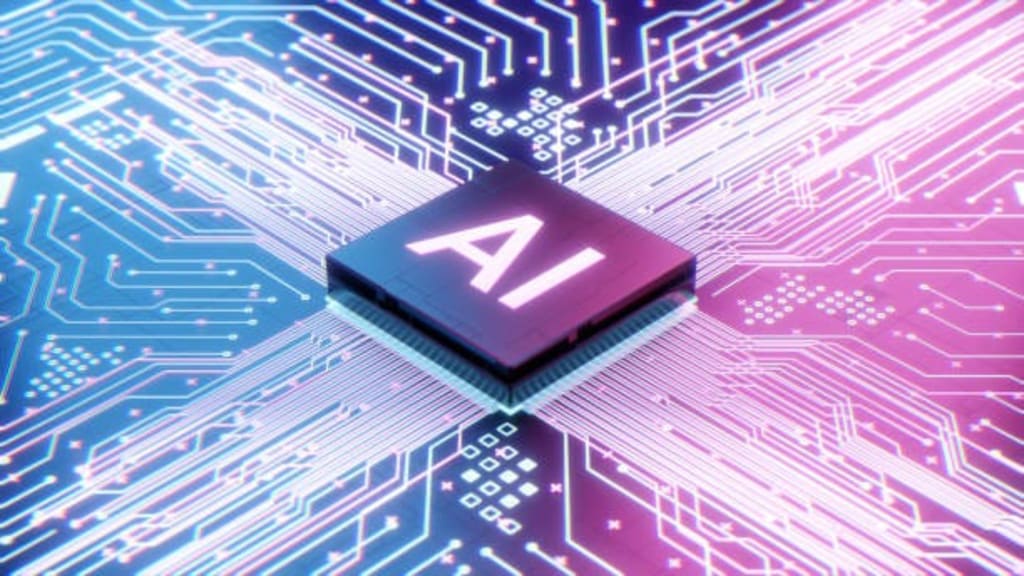The Rise of Artificial Intelligence: Revolutionizing the Tech Landscape
Navigating the Opportunities and Challenges in the AI-Driven Era

Artificial Intelligence (AI) has emerged as one of the most transformative technologies of our time. It is revolutionizing the tech landscape and reshaping industries across the globe. From self-driving cars to virtual assistants, AI is making its mark in various domains, promising to bring about unprecedented advancements and efficiencies. In this article, we will explore the rise of AI and its profound impact on the tech landscape.
AI refers to the simulation of human intelligence in machines that are programmed to think, learn, and problem-solve like humans. The concept of AI has been around for decades, but recent advancements in computing power, data availability, and algorithmic techniques have propelled it to new heights. Today, AI is being used to tackle complex problems, automate mundane tasks, and enhance decision-making processes.
One of the key areas where AI is making significant strides is in autonomous vehicles. Companies like Tesla, Waymo, and Uber are investing heavily in AI to develop self-driving cars that can navigate roads without human intervention. These vehicles rely on AI algorithms to perceive their environment, make real-time decisions, and ensure passenger safety. The potential impact of autonomous vehicles goes beyond convenience; they have the potential to reduce accidents, increase traffic efficiency, and revolutionize transportation as we know it.
Another domain where AI is making waves is healthcare. AI-powered algorithms can analyze vast amounts of medical data to detect patterns and make accurate diagnoses. This can lead to earlier detection of diseases, personalized treatment plans, and improved patient outcomes. Additionally, AI is being used in drug discovery, genomics research, and robotic-assisted surgeries, pushing the boundaries of what is possible in the field of medicine.
AI is also transforming the way we interact with technology. Virtual assistants like Siri, Alexa, and Google Assistant have become household names, providing us with information, managing our schedules, and even controlling our smart homes. These virtual assistants utilize natural language processing and machine learning algorithms to understand and respond to user commands. As AI continues to advance, we can expect more natural and intuitive interactions with our devices, ultimately blurring the line between humans and machines.
In the realm of e-commerce, AI is playing a pivotal role in enhancing customer experiences and driving sales. AI-powered recommendation systems analyze user behavior, purchase history, and preferences to offer personalized product suggestions. This not only increases customer satisfaction but also boosts conversion rates for businesses. Furthermore, AI chatbots are being employed by companies to handle customer inquiries and provide real-time support, improving overall customer service efficiency.
AI's impact is not limited to specific industries; it has the potential to transform entire sectors. For instance, in finance, AI algorithms can analyze vast amounts of financial data, detect fraud patterns, and make data-driven investment decisions. In manufacturing, AI-powered robots can automate repetitive tasks, improve precision, and enhance productivity. In agriculture, AI can optimize crop yields by analyzing weather patterns, soil conditions, and plant health. The possibilities are endless, and AI is poised to reshape the way we work, live, and interact with the world around us.
However, with the rise of AI also come challenges and ethical considerations. The rapid development of AI raises questions about job displacement and the future of work. As AI systems become more capable, there is a concern that certain jobs may become obsolete, leading to unemployment and economic inequality. It is crucial to address these concerns and focus on upskilling and reskilling the workforce to adapt to the changing technological landscape.
Moreover, ethical considerations surrounding AI need to be addressed. AI algorithms are only as unbiased as the data they are trained on. If the training data is biased, it can lead to discriminatory outcomes and reinforce existing societal biases. Transparency, accountability, and inclusivity must be at the forefront of AI development to ensure that the benefits of AI are distributed equitably and that AI systems are used responsibly.
To address these challenges, collaboration between technology developers, policymakers, and society as a whole is crucial. Ethical frameworks and regulations need to be established to govern the development and deployment of AI systems. This includes ensuring data privacy, promoting transparency in algorithmic decision-making, and fostering a culture of responsible AI development.
Furthermore, investing in education and training programs that focus on AI-related skills is essential. By equipping individuals with the knowledge and skills needed to work alongside AI systems, we can mitigate the risks of job displacement and create a workforce that can thrive in the AI-driven economy. Continuous learning and adaptation will be key in navigating the evolving tech landscape.
In conclusion, the rise of artificial intelligence is revolutionizing the tech landscape and transforming industries across the globe. From autonomous vehicles and healthcare advancements to personalized experiences and enhanced productivity, AI is reshaping the way we live, work, and interact. However, with great power comes great responsibility, and addressing the challenges and ethical considerations associated with AI is crucial. By fostering collaboration, establishing ethical frameworks, and investing in education, we can harness the potential of AI while ensuring a more inclusive and equitable future. The age of artificial intelligence is upon us, and it is up to us to shape its impact on society.





Comments
There are no comments for this story
Be the first to respond and start the conversation.